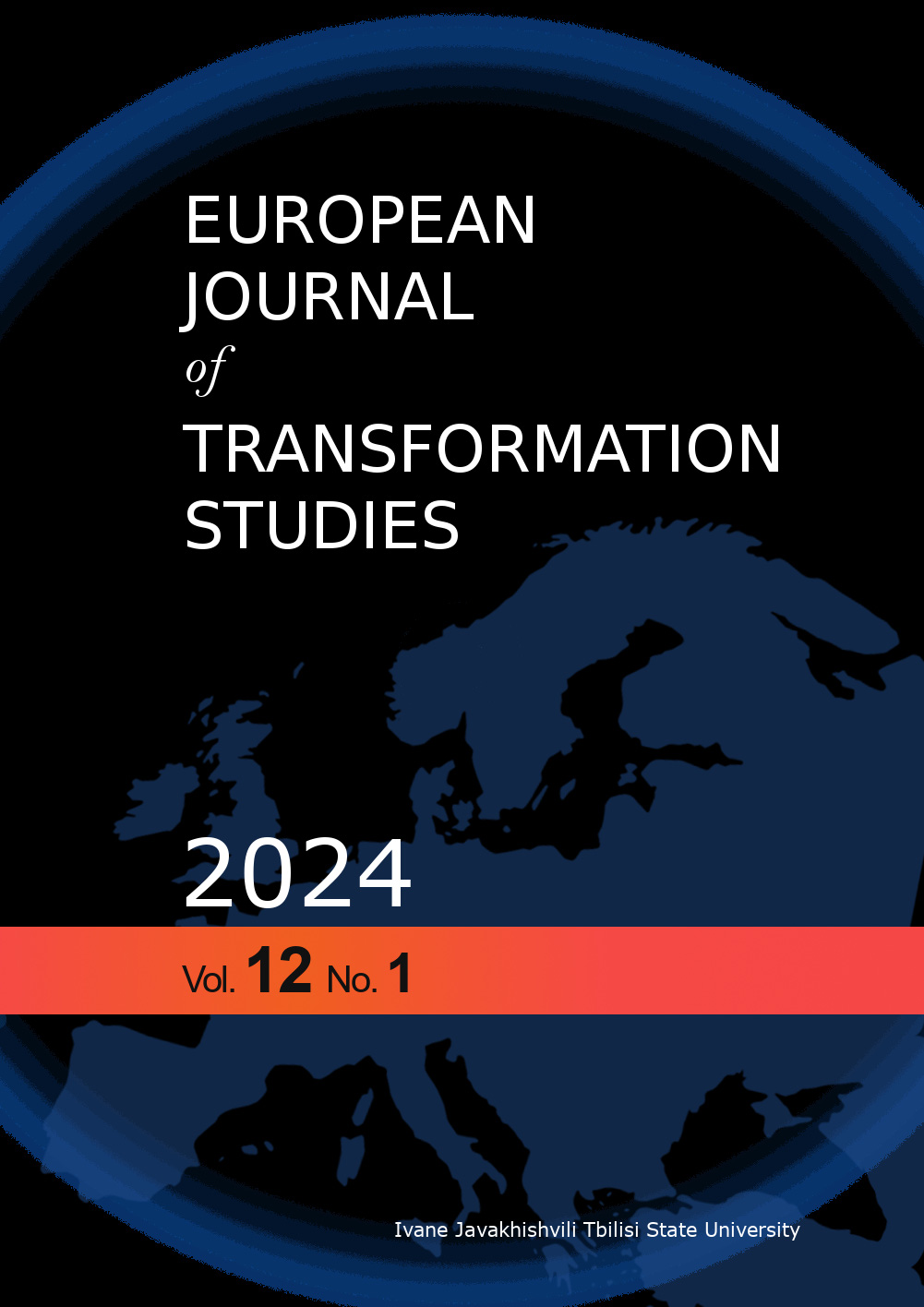Artificial Intelligence In The Protection Of Intangible Cultural Heritage
Keywords:
Cultural Policy, Technological Transformation in Cultural Heritage, AI Integration in Intangible Cultural Heritage, ICH Management, GeorgiaAbstract
This article examines the integration of artificial intelligence (AI) into the management of intangible cultural heritage (ICH), with a focus on how AI and big data can enhance cross-cultural communication and the preservation of "living knowledge." Through a case study in Georgia, the article highlights the critical need for ongoing staff training in AI technologies to effectively manage ICH. Quantitative data reveal significant gaps in digital competencies among cultural heritage professionals, which create barriers to AI adoption. The study also emphasizes the need to adapt cultural policies in the digital era to ensure the sustainable preservation and transmission of ICH. By advocating for data-driven strategies, this paper offers actionable insights for improving cultural heritage management and policy frameworks, providing guidance for cultural institutions worldwide.
Downloads
References
Das, B. R., Maringanti, H. B., & Dash, N. S. (2022). Role of artificial intelligence in preservation of culture and heritage. In Digitalization Of Culture through Technology (pp. 92–97). Routledge.
Harisanty, D., Obille, K. L. B., Anna, N. E. V., Purwanti, E., & Retrialisca, F. (2024). Cultural heritage preservation in the digital age, harnessing artificial intelligence for the future: a bibliometric analysis. Digital Library Perspectives, 40(4), 609–630.
Zoannos, N., Chourdaki, P., & Assimakopoulos, N. (2023). Can UNESCO Use Blockchain to Ensure the Intangible Cultural Heritage of Humanity? A Systemic Approach That Explains the Why, How, and Difficulties of Such a Venture. Heritage, 6(3), 3232-3255 t.
Lian, Y., & Xie, J. (2024). The Evolution of Digital Cultural Heritage Research: Identifying Key Trends, Hotspots, and Challenges through Bibliometric Analysis. Sustainability, 16(16), 7125.
Giannini, E., & Makri, E. (2023, March). Cultural Heritage Protection and Artificial Intelligence; The Future of Our Historical Past. In International Conference on Transdisciplinary Multispectral Modeling and Cooperation for the Preservation of Cultural Heritage (pp. 375–400). Cham: Springer Nature Switzerland.
Liu, H., & Fan, J. (2024). AI‐Mediated Communication in EFL Classrooms: The Role of Technical and Pedagogical Stimuli and the Mediating Effects of AI Literacy and Enjoyment. urnal of Education, e12813.
Clippele, M. S. (2023). Are Digital Cultural Commons Culturally Diverse?. International Journal for the Semiotics of Law-Revue internationale de Sémiotique juridique, 36(5), 2067– 2086.
Andrii, F. (2023, April). LEGAL PROTECTION OF INTANGIBLE CULTURAL HERITAGE. In
The 13th International scientific and practical conference “Information activity as a component of science development”(April 04–07, 2023) Edmonton, Canada. International Science Group. 2023. 580 p. (p. 110).
Park, S., & Kudo, H. (2024). Cultural institutions as knowledge-intensive public organisations (KIPOs) and their role: how digitalisation can change them providing sustainable and accessible public services. Journal of Public Budgeting, Accounting & Financial Management.
Lupo, E., Camosino, G., Gobbo, B., Motta, M., Mauri, M., Parente, M., ... & Rubino, F. (2023). Digital for heritage and museums: design-driven changes and challenges.
Gîrbacia, F. (2024). An Analysis of Research Trends for Using Artificial Intelligence in Cultural Heritage. Electronics, 13(18), 3738.
Barszcz, M. a.-{. (2021). Comparative analysis of digital models of objects of cultural heritage obtained by the “3D.
Kenderdine, S. (2021). Experimental museology: Immersive visualisation and cultural (big) data. Experimental, Museology, 15.
Ott, M., Dagnino, F. M., & Pozzi, F. (2015). Intangible cultural heritage: Towards collaborative tions. Computers in Human Behavior, 51, 1314–1319.

 Academic Scientific Journals
Academic Scientific Journals



